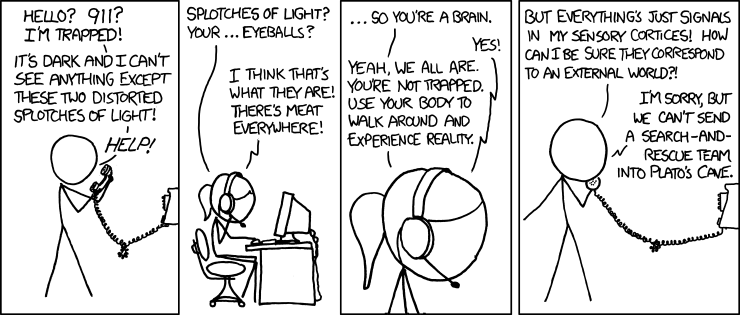Coercion can be a literal “gun to the head”, or any other threat of harm sufficient to compel one person to subordinate their will to the will of another.
Undue influence is
any extraordinary condition that effectively removes a person’s control of their choice. Certain mental illnesses can distort a person’s perception of reality by hallucinations or delusions. Other brain impairments can directly damage the ability to reason. Yet another form may subject them to an irresistible compulsion. Hypnosis would be an undue influence. Authoritative command, as exercised by a parent over a child, an officer over a soldier, or a doctor over a patient, is another. Any special circumstances that effectively remove a person’s control over their choice would be an undue influence.
What i read are handwaves rather than material operations.
Hmm. I give you operational definitions and you call them "handwaves". Do you understand the operation of a "mugging", where one person pulls out a gun and says "Your money or your life!"? Do you understand the operation of a mind beset by hallucinations and delusions to the point where the mental illness, rather than the person, is held responsible for their actions?
You presume something call choice without defining what it is.
Always happy to provide an operational definition of any of the terms I'm using:
A "choice" is the output of a choosing operation. The choosing operation inputs multiple options, applies some criteria of comparison, and outputs a "choice". The choice is usually in the form of an "I will X", where X is the specific thing we have chosen to do. Having fixed our intent (also known as our "will") upon a specific task, that intention motivates and directs our subsequent thoughts and actions until the task is complete or interrupted by a different task or abandoned.
The "options" are possible choices. Things that we "can" choose to do, and that we "can" actually do if we so choose. The "criteria of comparison" is some appropriate set of characteristics that enable us to evaluate the likely outcome of a given course of action.
For example, in the restaurant, the menu provides a list of possible choices. We evaluate these choices based upon our own dietary goals and our own reasoning. We may find the juicy Steak tempting, but then recall that we had bacon and eggs for breakfast and a double cheeseburger for lunch. So, we may choose a Salad instead of the steak for dinner tonight.
The Salad becomes what we "will" order, and the Steak becomes one of the things that we "could have" ordered, but would not order tonight.
What I read is one empty term as reason for other empty terms, the last of which you present stands out: " remove(ing/al) a person's control of their choice would be an undue influence."
Well, I can only write. I can't read things for you. That's something that you're either willing to do or not to do. It's your choice.
The brain evolves to better use what one senses just as one's senses evolve to improve their capability to sense. In neither case does sense or processing sense become sense. Your argument is logical extension of Descartes debunked claim "I think there fore I am."
Well, Descartes claim that "I think therefore I am" seems more sensible than "I think I am not".
Operationally, a race is a social event in which multiple participants attempt to get from the starting point to the ending point ahead of everyone else.
No. Operationally the race is the gun going off and the runners thereafter running to a point in space. The social event is, within the minds of the individuals, competing in a race.
Both are equally operational descriptions. The fact that "the social event, within the minds of the individuals, is competing in a race" is richer and more meaningful, if one cares about meaning.

